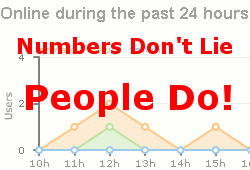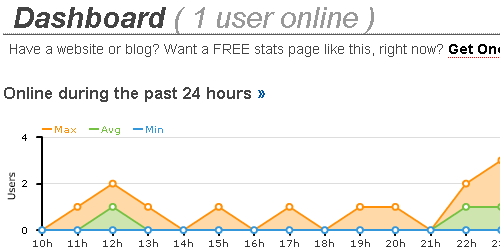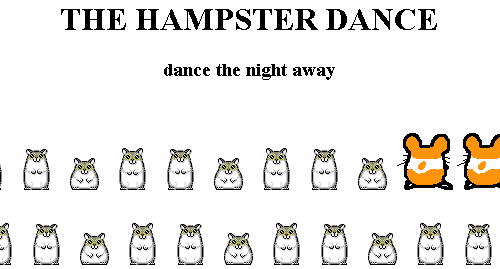
Klout is a social measurement tool that places a numeric value on a person’s influence within their social media circles. The service currently pulls data from Twitter, Facebook, LinkedIn and Foursquare for their influence calculations, but plans to add Google+, YouTube, Facebook Pages, and others for a total of 20 networks by the end of 2011.
On the surface, it may sound positively impersonal, and even a bit absurd to make judgments based on a number, but is it really? We’ve been doing it for many years with credit scores. I don’t think it is a good idea to become obsessed about statistics such as these, but I do believe it is valuable to be aware.
Klout seems to have really honed in on a couple of interesting psychological and business needs of social media. I will explain what I mean, and how it could have a real-world impact for a lot of people, whether they like it or not.
I wrote about Klout back in 2010 in an article on the topic of social media measurement tools and what they know about you. It raised a question of what this type of service may know, and what level of accuracy or inaccuracy they may reflect. This type of data collection across multiple networks is subject to errors. Reliability is simply not guaranteed, but it is getting better.
Klout Score and Perceived Personal Worth
Klout hits on a very personal psychological need for a lot of people, which is the need to feel valuable. I think we can largely agree that we all want to feel like we make an impact. We want to know that we are being heard.
This is not to say that we are all Narcissistic for using social media, but only that it would not be so fun to communicate if nobody listened to us or acknowledged us. If that was the way we wanted it, we would just keep all of our Facebook, Twitter, LinkedIn, and other social media thoughts to ourselves. We could keep them on our own computers and we wouldn’t need this Internet to share them.

The desire to share and collaborate clearly creates a strong psychological drive for many people. I do not think it is at all strange for somebody to feel a sense of greater personal satisfaction when their thoughts or ideas receive Facebook shares and comments, or Twitter replies and retweets. It is no more Narcissistic or bizarre than how it feels to receive applause for any job done well. In some cases, it can actually be quite humbling, like when the whole restaurant starts singing “Happy Birthday” and you just want to sink deep down into your seat as you blush. At the same time, it feels kind of alluring and it makes you smile.
When it comes to social media, it is easy to be just a bit allured by the objective measurements. I’ll be the first to raise my hand. When I see a squillion people sharing my work, I love it. It makes me happy, like sucking free grape soda through a garden hose, while eating from kiddie pool piled high with bacon. It feels very satisfying, and validating.
So, I am sure you can imagine how this psychological desire applies to Klout. Klout measures a person’s influence of others. People want to know their Klout Score, and it is pretty hard to fault them for that. This makes it easy to understand why it has had such a strong level of attention, and how it holds huge potential for continued growth.
The Business End of Klout
Far beyond the typical consumer desire to be measured as accepted, popular, or influential, there is a strong business side of Klout that is undeniable.

There is magic in numbers! I am a marketing guy, so I rely on a lot of different sets of numbers. Many of the numbers that are conventionally viewed as important don’t mean a damn thing to me. Inaccurate or meaningless data would be an easy way for a guy in my line of work to waste a lot of time, and burn through huge amounts of money. That means I need the good stuff. I want the least fallible information I can get my hands on, and that is where my attention is focused.
Klout’s data is largely based on activities across Twitter, Facebook, and LinkedIn, but there is another component that allows a sort of industry-specific peer review. Yes, Klout also includes industry-specific information about an individual’s influence. In this peer review model, others may enhance a person’s Klout by clicking to give them “+K” for a given segment, and it is like a vote. The “K” is wisely limited so that a user only has five “K” to give out per day. So, if I wanted to give you a “K” because you influenced me in some way, I cannot go wild and spike your Klout score. If I really liked you, I could come back each day and give you “K”, but that would not provide unreliable data, because it would reliably reflect your high level of influence upon me.
Klout also attempts to define a style in which a person influences others. These styles provide an interesting overall view of how the individual uses their social media. There are sixteen different styles, and they are described as follows:
Klout Style Definitions
- Curator: You highlight the most interesting people and find the best content on the web and share it to a wide audience. You are a critical information source to your network. You have an amazing ability to filter massive amounts of content to surface the nuggets that your audience truly care about. Your hard work is very much appreciated.
- Broadcaster: You broadcast great content that spreads like wildfire. You are an essential information source in your industry. You have a large and diverse audience that values your content.
- Taste Maker: You know what you like and your audience likes it too. You know what’s trending, but you do more than just follow the crowd. You have your own opinion that earns respect from your network.
- Celebrity: You can’t get any more influential than this. People hang on your every word, and share your content like no other. You’re probably famous in real life and your fans simply can’t get enough.
- Syndicator: You keep tabs on what’s trending and who’s important to watch. You share the best of this with your followers and save them from having to find what’s hot on their own. You probably focus on a specific topic or cater to a defined audience.
- Feeder: Your audience relies on you for a steady flow of information about your industry or topic. Your audience is hooked on your updates and secretly can’t live without them.
- Thought Leader: You are a thought leader in your industry. Your followers rely on you, not only to share the relevant news, but to give your opinion on the issues. People look to you to help them understand the day’s developments. You understand what’s important and what your audience values that.
- Pundit: You don’t just share news, you create the news. As a pundit, your opinions are wide-spread and highly trusted. You’re regularly recognized as a leader in your industry. When you speak, people listen.
- Dabbler: You might just be starting out with the social web or maybe you’re not that into it. If you want to grow your influence, try engaging with your audience and sharing more content.
- Conversationalist: You love to connect and always have the inside scoop. Good conversation is not just a skill, it’s an art. You might not know it, but when you are witty, your followers hang on every word.
- Socializer: You are the hub of social scenes and people count on you to find out what’s happening. You are quick to connect people and readily share your social savvy. Your followers appreciate your network and generosity.
- Networker: You know how to connect to the right people and share what’s important to your audience. You generously share your network to help your followers. You have a high level of engagement and an influential audience.
- Observer: You don’t share very much, but you follow the social web more than you let on. You may just enjoy observing more than sharing or you’re checking this stuff out before jumping in full-force.
- Explorer: You actively engage in the social web, constantly trying out new ways to interact and network. You’re exploring the ecosystem and making it work for you. Your level of activity and engagement shows that you “get it”, we predict you’ll be moving up.
- Activist: You’ve got an idea or cause you want to share with the world and you’ve found the perfect medium for it. Your audience counts on you to champion your cause.
- Specialist: You may not be a celebrity, but within your area of expertise your opinion is second to none. Your content is likely focused around a specific topic or industry with a focused, highly-engaged audience.
These are not handed out at random, but rather based on the outgoing and incoming data about each given profile. Although, for some really crazy but totally flattering reason, Klout measures me as a “Celebrity”. Of course, to that I’d say “Heck yeah … roll out the red carpet and pop the champagne. There’s gonna be a party!”

Is Klout Accurate?
Do I think that Klout is entirely accurate? Absolutely not, but I do believe they are doing a good job. One reason is the sheer volume of their data. They are currently compiling data about more than 75 million users, and expect to include information from 20 different networks by the end of 2011. The numbers become more accurate in higher volume, but that is not enough. What about how that data is processed? This is where Klout really stands out, and pulls away from the crowd.
Klout organizes data from more sources and uses more factors than other companies trying to compile and present a numeric score. The broad diversity of data acquisition makes it much harder to cheat a Klout score, and thus, more reliable than other online influence measurement tools. If you have not already done so, it is worth taking a look at how Klout compiles scores. There is clearly a far more in-depth process than what is described, but it will give you a good overview.
Like anything else, Klout can be manipulated for an increased score, but not without a high degree of talent, and significant efforts.
Historical data is critically important in many business processes, but let’s not overlook the value of predictive data. With the right data at hand, I can imagine predictive data becoming a part of the Klout algorithm in the future, as people seek those who are on the rise. Imagine the business value of finding those with high potential who are just not on the RADAR yet.
Is Klout Good or Evil?
Is Klout good or evil? This is a question that it seems a lot of people struggle with about any company which acquires a lot of data. I think it is good, and it helps to meet some challenging needs of businesses and individuals surrounding trust and reputation.
Everybody wants to have influence, but it comes in a package with other factors. Those other factors of trust and reputation are often even harder for companies and individuals to put their finger on. Klout offers some broad insight about an individual and how others view them.
Would I weigh an important hiring or purchasing decision, or a business partnership choice heavily based on Klout? I guess you would have to define heavily for me to answer that, but in many scenarios, I would definitely have to consider it a factor.
Let’s face it, we are each measured every day. Whether it is for the style of our hair, the car we drive, the company we keep, the way we walk, talk, and even how we chew our food. Somebody will always be watching and summing us up. Klout takes it to the social web and makes well-founded estimates about us based on observations.
Perhaps the best answer, for anybody who does not like it, is to consider the other ways in which we are judged based on less reliable factors and guesswork. In the case of Klout, I don’t think it is any more an invasion of privacy or an intrusion than people-watching in a shopping mall.
In the instance of social media, if you are doing the equivalent of standing there picking your nose, somebody will probably notice. In fact, they may even share it on Facebook, and get a higher Klout score for it!
Now if you’d just go and tweet this, Facebook it, give me a Klout “+K” bump for social media, and make a lot of comments about it, maybe I will get that new dreamy offer I’ve been seeking and share some of my Klout with you.
Fine, even if you don’t give me any “K”, I urge you to check it out just to see what Klout knows about you. It may uncover people that you influence and didn’t even know it, or it may introduce you to somebody new to connect with. It’s free, so you don’t have anything to lose, and quite possibly something to gain.
Photo Credits:
Job Interview by Quinn Dombrowski via Flickr
I Made It by Kirsten via Flickr
Podcast: Play in new window | Download











